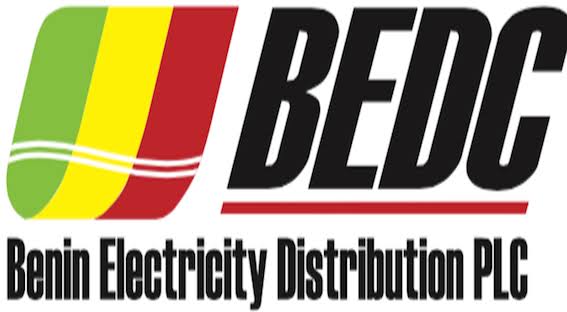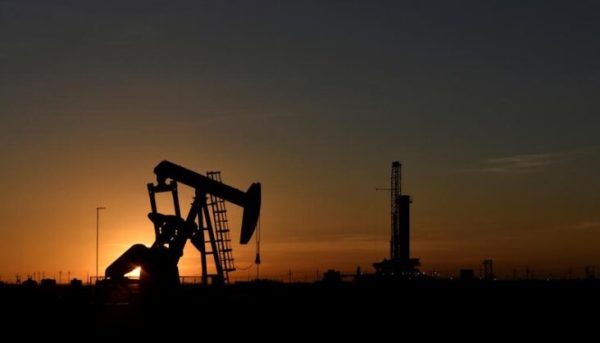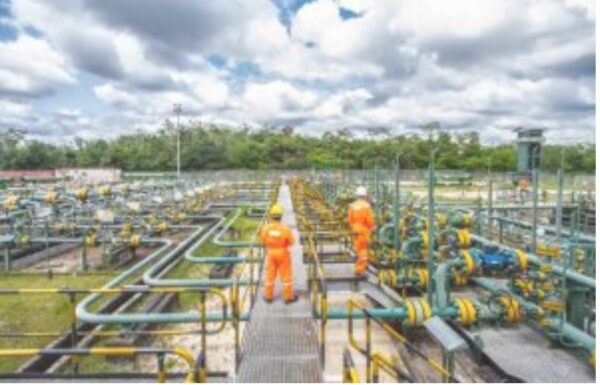Why NNPC Lifted Ban On 113 Crude Oil Vessels’
 In another dramatic twist in its ongoing effort to restructure the nation’s oil and gas sector, the Nigerian National Petroleum Corporation (NNPC), last week lifted the nearly two months embargo placed on 113 vessels from operating within the country’s territorial waters.
In another dramatic twist in its ongoing effort to restructure the nation’s oil and gas sector, the Nigerian National Petroleum Corporation (NNPC), last week lifted the nearly two months embargo placed on 113 vessels from operating within the country’s territorial waters.
The corporation in a statement by its Group General Manager, Group Public Affairs, Mr. Ohi Alegbe, explained that the lifting of the ban was subject to the receipt of Letters of Comfort from all terminal operators, oil companies and off-takers of Nigerian oil and gas guaranteeing the nominated vessels, pending the outcome of detailed investigation, are unencumbered and would not be utilised for any illegal activity whatsoever.
NNPC noted that in view of the above, the Federal Government has approved the establishment of an Inter-Agency Committee made up of the Department of State Services (DSS), Nigerian Maritime Administration and Safety Agency (NIMASA), Nigerian Navy, Department of Petroleum Resources (DPR) and the NNPC with the mandate to collect data and investigate the activities of the banned vessels within Nigerian territorial waters.
“The Inter-Agency Committee will appraise the culpability or otherwise of each of the vessels in time past and advise appropriately,” the NNPC stated.
The Federal Government had as a result of the inability of crude oil buyers to reconcile figures of crude oil shipped and what is reflected on the bill of lading issued a directive to NNPC prohibiting 113 crude oil vessels from engaging in crude oil, gas loading activities in any of terminals within Nigerian territorial waters.
The directive, which was contained in a circular signed by the former Group General Manager, Crude Oil Marketing Division of NNPC, Mr. G. O. Komolafe, to all terminal operators dated July 15, 2015 was with immediate effect.
The circular with reference number: GGM/ST/EX/01, was at the instance of President Muhammadu Buhari and was copied to the Director of DPR, Chief of Naval Staff (CNS), Director General, Nigerian Maritime Administration and Safety Agency (NIMASA) and Comptroller General, Nigerian Customs Service (NCS).
It read in part: ‘‘I am directed to convey to you the directives of Mr. President, Muhammadu Buhari, regarding prohibition of some crude oil vessels. The affected vessels have also been barred from movements within the Nigerian territorial waters forthwith.
“Finally, enforcement of the above directives takes immediate effect pending a notice to the contrary by government,” the circular stated.
Shipping and trading sources had then disclosed that the NNPC’s grievance with the shipping companies stemmed from issues surrounding output figures relating to crude oil exports at the port of discharge, according to Platts, a global energy trading information source.
The sources, which preferred not to be mentioned, said there have been a few incidents between Nigerian authorities and their crude oil buyers on differences between the volume of crude discharged and the volume on the bill of lading.
A trader who is active in the West African crude oil market said, “we hear it is about the outturn figures, as there are sometimes differences between the loading and discharge figures, especially with certain countries.”
A ship owner affected by the potential ban said, “we are currently gathering information. A lot of market players have received the document and we have to take it seriously. The NNPC is asking for outturn figures but the receivers of the cargoes have this information, not the ship owners. They need to approach the cargo receivers, not the vessel owners.”
Other sources said the ban could be related to settling dues such as port and maritime fees, adding that the majority of Nigerian crude cargoes are lifted on Suezmax and VLCC tankers.
“We suspect it is part of a fallout from the level of scrutiny that NNPC is currently under,” a Nigerian crude oil trader said.
He added that this might be part of the new government’s drive to target “vessels that have not paid dues or have been involved in incidents with the Navy. In this new administration, such lapses are being corrected,” he added.
Some sources said the NIMASA had previously issued advice to vessel operators and owners to comply with International Maritime Organisation (IMO) directives to countries to phase out vessels that do not meet international standards.
They said some of the vessels in the list might fall into the category of tankers that did not meet the IMO standards.







